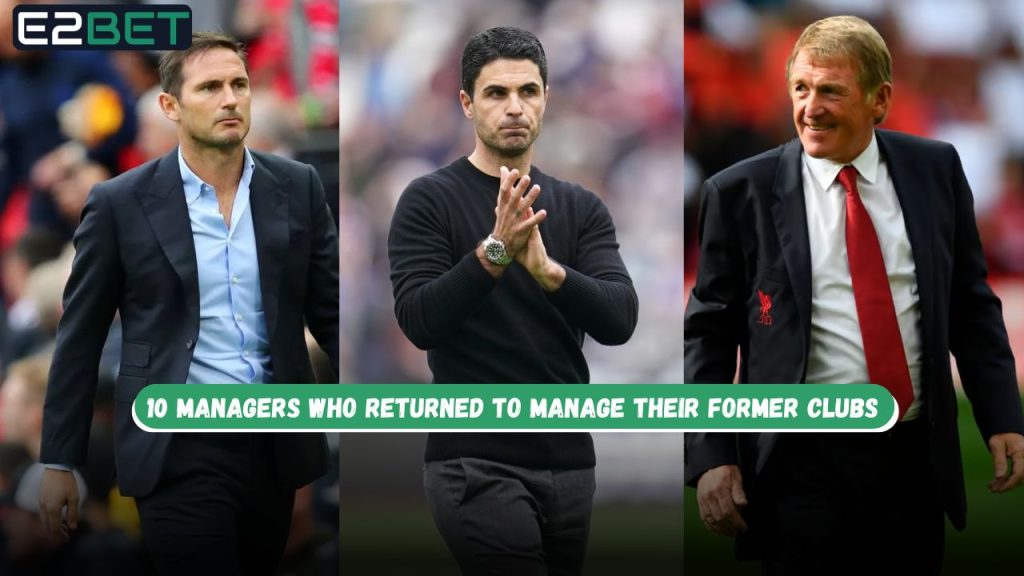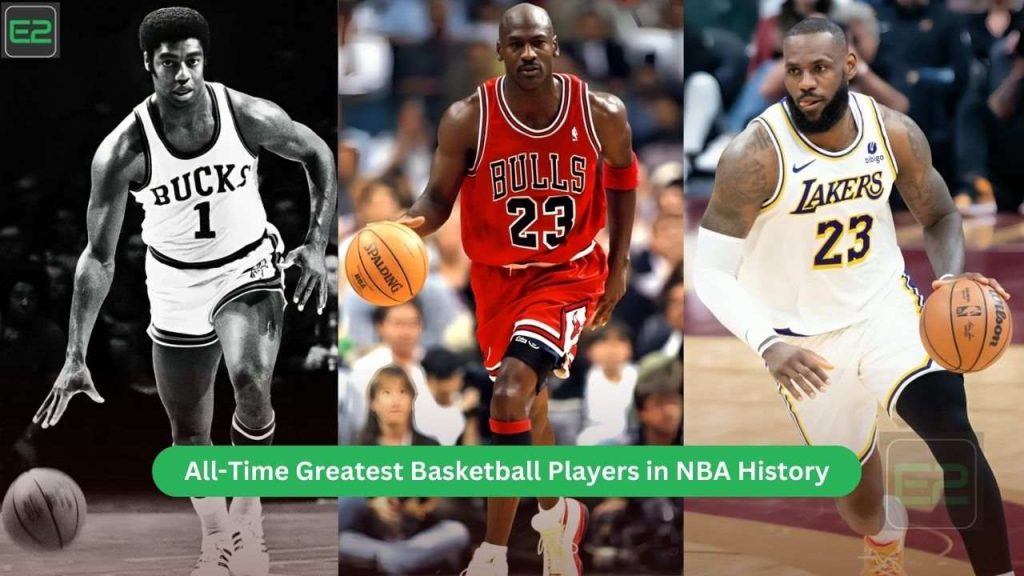In football, few things captivate fans more than a club legend returning to manage the team where they once starred. These instances are celebrated, scrutinized, and often romanticized in the Premier League. With Rob Edwards’ appointment at Wolverhampton Wanderers, we revisit some of the most remarkable stories of Managers Who Returned to Manage Their Former Clubs.
From icons lifting trophies to managers struggling under pressure, the transition from pitch to dugout is never straightforward. Let’s examine ten legendary examples.
Mikel Arteta – Arsenal
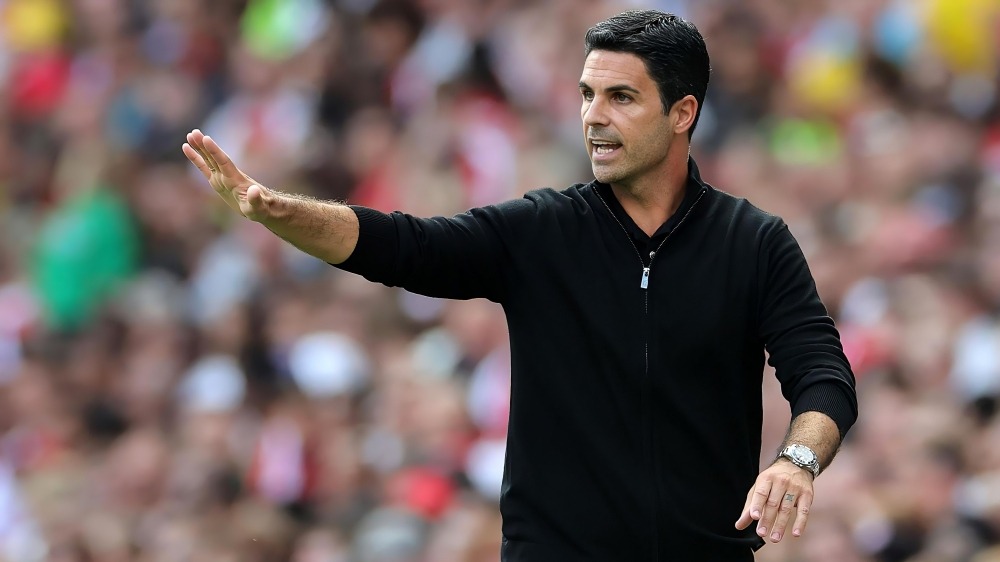
Mikel Arteta perfectly embodies the concept of Managers Who Returned to Manage Their Former Clubs. After retiring from playing, Arteta immediately joined Pep Guardiola at Manchester City as an assistant coach, learning under one of the game’s most innovative minds. His development there shaped his tactical approach, which he brought back to Arsenal—where he played from 2011 to 2016.
Player vs Manager Stats at Arsenal
| Role | Apps | Wins | Draws | Losses | Pts/Match |
|---|---|---|---|---|---|
| Player | 110 | – | – | – | – |
| Manager | 221 | 131 | 43 | 47 | 1.97 |
As a player, Arteta was celebrated for his vision, passing, and leadership. As a manager, he’s combined defensive discipline with ruthless counterattacking, turning Arsenal into genuine title contenders. Within eight months, he lifted the FA Cup, signaling the beginning of a long-term project aimed at ending a 19-year Premier League title drought.
Frank Lampard – Chelsea

Frank Lampard is one of the quintessential examples of Managers Who Returned to Manage Their Former Clubs. As a player, he became Chelsea’s all-time top scorer and a key figure in their 2004–2010 domestic dominance. Lampard returned to Stamford Bridge first in 2019 under extraordinary conditions—a season-long transfer ban and a squad in transition. He came back again in 2023 to steady a mid-table team.
Player vs Manager Stats at Chelsea
| Role | Apps | Wins | Draws | Losses | Pts/Match |
|---|---|---|---|---|---|
| Player | 429 | – | – | – | – |
| Manager | 66 | 29 | 13 | 24 | 1.52 |
Chelsea has a tradition of trusting club icons, including Glenn Hoddle, Ruud Gullit, Gianluca Vialli, and Roberto Di Matteo. Lampard’s spells highlighted both the opportunities and pressures for former players who return as managers.
Sir Kenny Dalglish – Liverpool
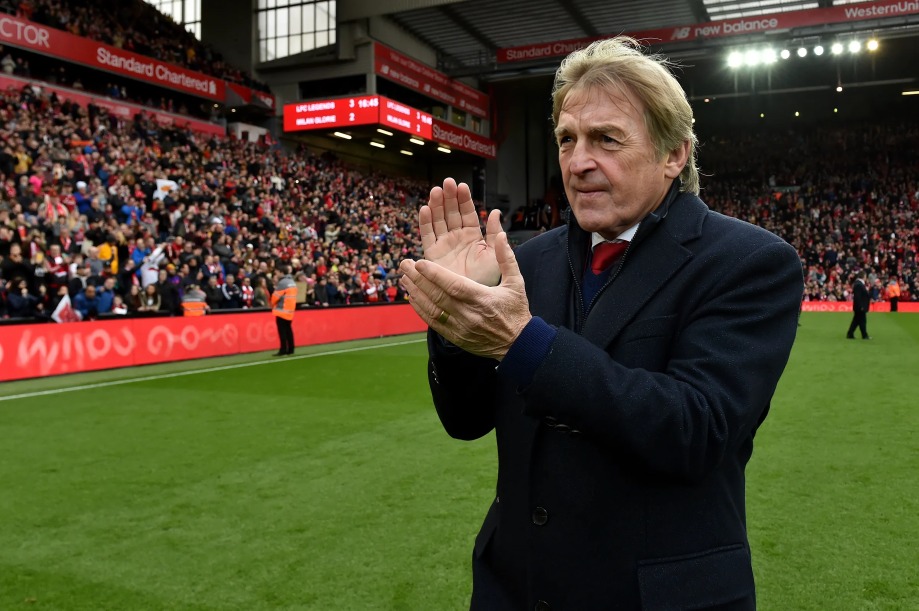
Sir Kenny Dalglish is a living legend and a prime example of Managers Who Returned to Manage Their Former Clubs. Dalglish’s playing career at Liverpool included multiple league titles and European success, before he transitioned to a player-manager role in the 1980s. After more than a decade away from management, Dalglish returned in 2011 following Roy Hodgson’s departure.
Player vs Manager Stats at Liverpool
| Role | Apps | Wins | Draws | Losses | Pts/Match |
|---|---|---|---|---|---|
| Player | 515 | – | – | – | – |
| Manager | 56 | 24 | 13 | 19 | 1.52 |
Despite winning the League Cup in 2012, Dalglish’s second stint was challenging, with an underwhelming league campaign and a squad in transition. His story demonstrates how even club legends face immense pressure when returning as managers.
Read More:-
Glenn Hoddle – Tottenham Hotspur
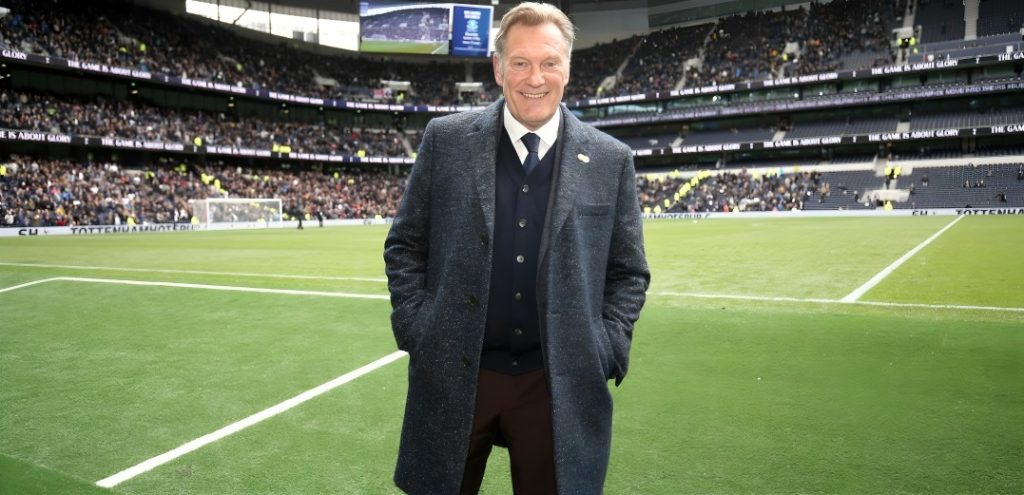
Glenn Hoddle, one of the most elegant midfielders in Premier League history, is another example of Managers Who Returned to Manage Their Former Clubs. Hoddle spent 14 years at Spurs, making 490 appearances and winning three major trophies. After managerial stints abroad, he returned to Tottenham in 2001.
Player vs Manager Stats at Spurs
| Role | Apps | Wins | Draws | Losses | Pts/Match |
|---|---|---|---|---|---|
| Player | 490 | – | – | – | – |
| Manager | 89 | 32 | 18 | 39 | 1.28 |
While he led Spurs to a League Cup final, inconsistent league results and high expectations led to his dismissal in September 2003. Hoddle’s experience illustrates the fine line between nostalgia and performance for returning managers.
Ole Gunnar Solskjaer – Manchester United
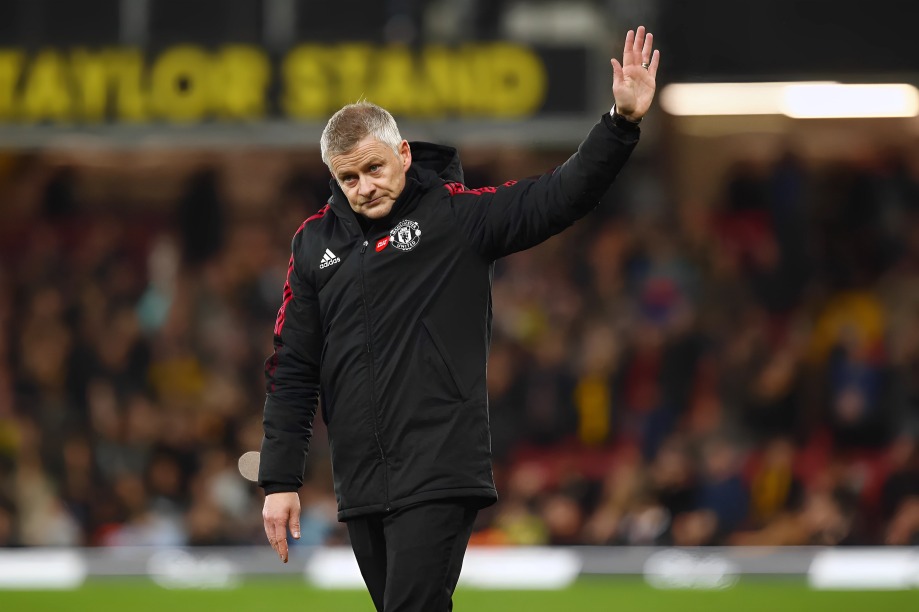
Ole Gunnar Solskjaer’s career is a testament to the emotional pull of Managers Who Returned to Manage Their Former Clubs. A hero on the pitch, winning six Premier League titles as a player, Solskjaer’s managerial career included early struggles at Cardiff City but a redemptive return at Manchester United.
Player vs Manager Stats at Manchester United
| Role | Apps | Wins | Draws | Losses | Pts/Match |
|---|---|---|---|---|---|
| Player | 235 | – | – | – | – |
| Manager | 109 | 56 | 29 | 24 | 1.81 |
Solskjaer achieved immediate impact, winning eight consecutive matches at the start of his tenure. Despite finishing second and third in successive seasons, silverware eluded him, including a defeat in the 2021 Europa League final.
Scott Parker – Fulham
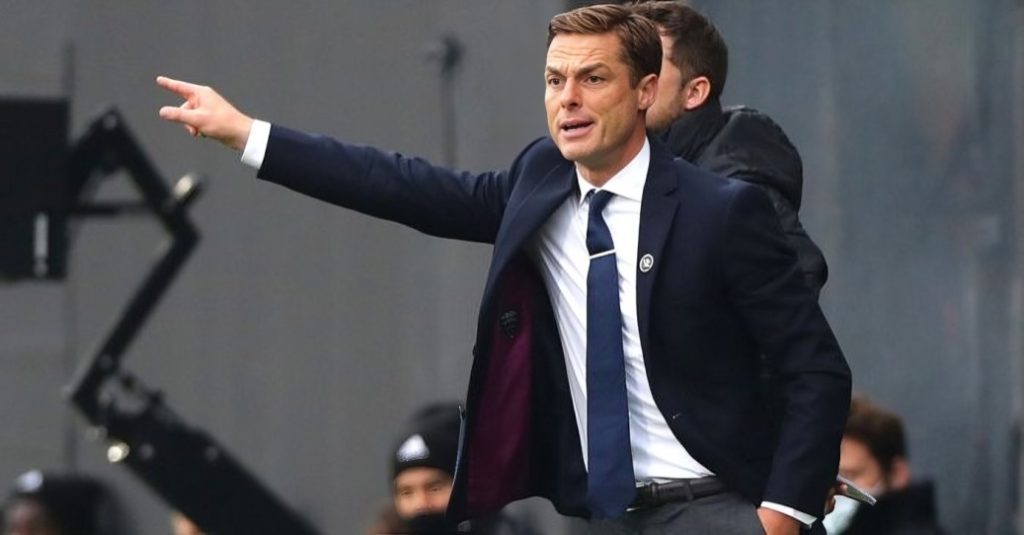
Scott Parker’s path perfectly fits the narrative of Managers Who Returned to Manage Their Former Clubs. After a distinguished playing career with Fulham, he cut his teeth in coaching at Tottenham’s academy before taking over at Craven Cottage.
Player vs Manager Stats at Fulham
| Role | Apps | Wins | Draws | Losses | Pts/Match |
|---|---|---|---|---|---|
| Player | 29 | – | – | – | – |
| Manager | 48 | 8 | 13 | 27 | 0.77 |
Parker successfully guided Fulham to Championship promotion, though Premier League survival proved difficult. His experience highlights the challenge of translating success in lower divisions into top-flight stability.
Alan Shearer – Newcastle United
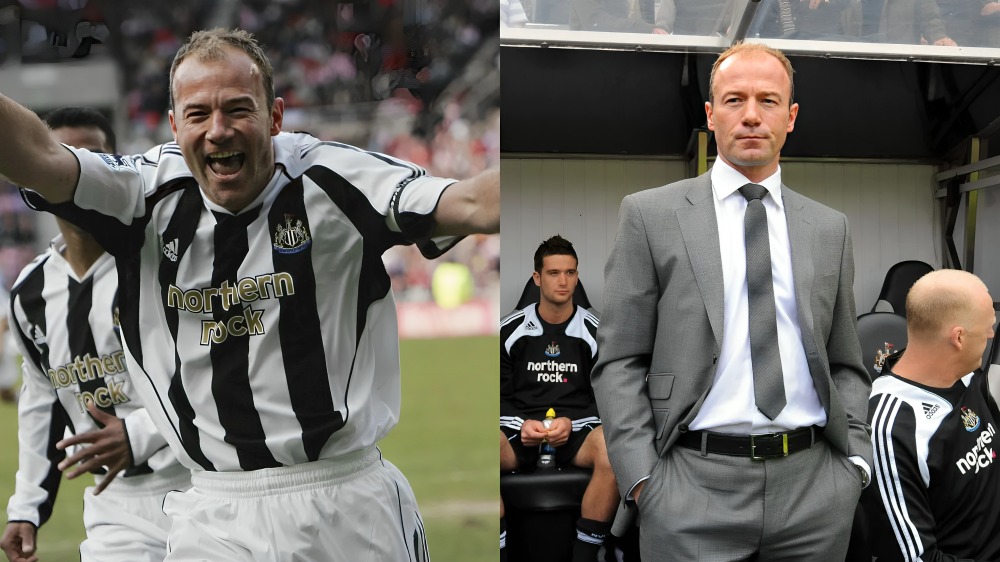
Alan Shearer embodies the challenges faced by Managers Who Returned to Manage Their Former Clubs. Seven months after Kevin Keegan’s departure, Newcastle appointed the club legend in a desperate bid to avoid relegation.
Player vs Manager Stats at Newcastle
| Role | Apps | Wins | Draws | Losses | Pts/Match |
|---|---|---|---|---|---|
| Player | 303 | – | – | – | – |
| Manager | 8 | 1 | 2 | 5 | 0.63 |
Despite the hope surrounding Shearer’s arrival, the team struggled to produce results, and relegation was confirmed on the final day of the season.
Gareth Southgate – Middlesbrough
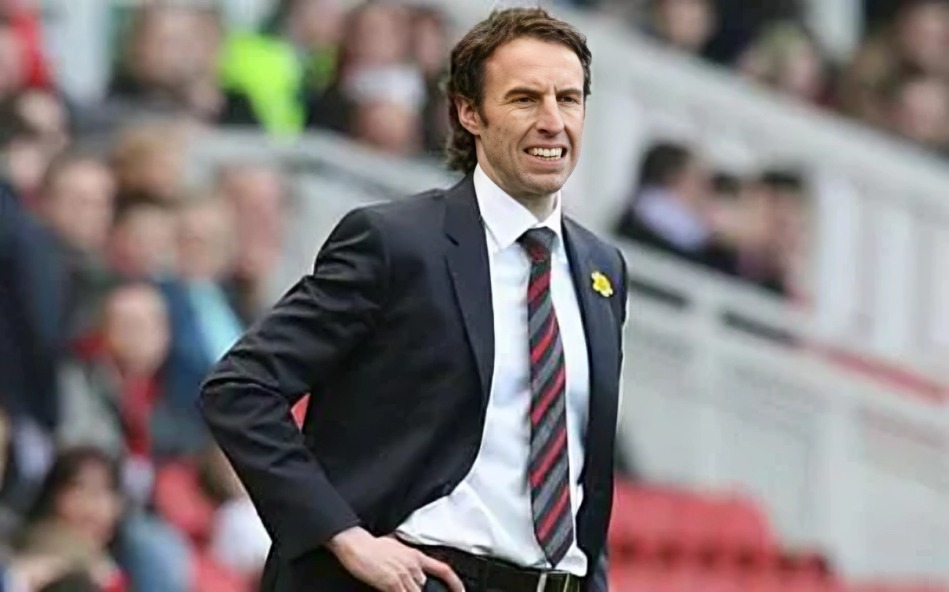
Before his England managerial career, Gareth Southgate serves as an example of Managers Who Returned to Manage Their Former Clubs. He retired at Middlesbrough in 2006 and was quickly appointed as head coach, succeeding Steve McClaren.
Player vs Manager Stats at Middlesbrough
| Role | Apps | Wins | Draws | Losses | Pts/Match |
|---|---|---|---|---|---|
| Player | 160 | – | – | – | – |
| Manager | 114 | 29 | 33 | 52 | 1.05 |
Southgate demonstrated skill in nurturing young talent, though Boro eventually fell to the Championship in 2008/09, showing how even respected players face difficulties in management.
Slaven Bilic – West Ham United
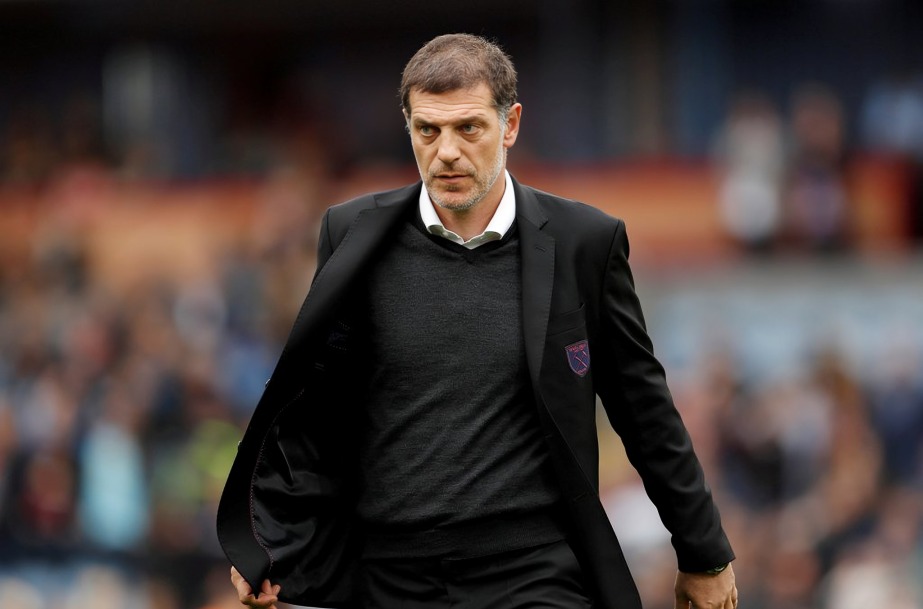
Slaven Bilic, the guitar-wielding, cult hero defender, illustrates Managers Who Returned to Manage Their Former Clubs. Returning ahead of Upton Park’s farewell season, Bilic brought flair and excitement to West Ham.
Player vs Manager Stats at West Ham
| Role | Apps | Wins | Draws | Losses | Pts/Match |
|---|---|---|---|---|---|
| Player | 48 | – | – | – | – |
| Manager | 87 | 30 | 26 | 31 | 1.33 |
His first season included remarkable victories against the Premier League’s elite, though subsequent campaigns proved more challenging.
Mark Hughes – Blackburn & Southampton

Mark Hughes exemplifies dual-case Managers Who Returned to Manage Their Former Clubs. Starting his managerial career with Wales while still playing, he later returned to Blackburn and Southampton, mentoring squads filled with cult heroes.
Player vs Manager Stats at Blackburn & Southampton
| Club | Player Apps | Manager Apps | Wins | Draws | Losses | Pts/Match |
|---|---|---|---|---|---|---|
| Blackburn | 21 | 147 | 58 | 39 | 50 | 1.45 |
| Southampton | 52 | 22 | 3 | 8 | 11 | 0.77 |
Hughes’ story reflects the challenges of leading teams with limited resources while managing high expectations from fans and club legends.
FAQ – Managers Who Returned to Manage Their Former Clubs
1.What does it mean to return as a manager?
It’s when a former player comes back to lead the same club as manager, combining familiarity with high expectations.
2.Which clubs often hire former players?
Clubs like Arsenal, Chelsea, Manchester United, and Liverpool frequently appoint club legends as managers.
3.Who are some successful examples?
Mikel Arteta (Arsenal), Ole Gunnar Solskjaer (Man Utd), and Sir Kenny Dalglish (Liverpool) are among the most successful.
4.What are the risks?
High expectations can backfire. Legends like Alan Shearer at Newcastle struggled despite their playing legacy.
5.Why do clubs do it?
Clubs hire former players to inspire fans, preserve club culture, and motivate squads with a familiar leader.

